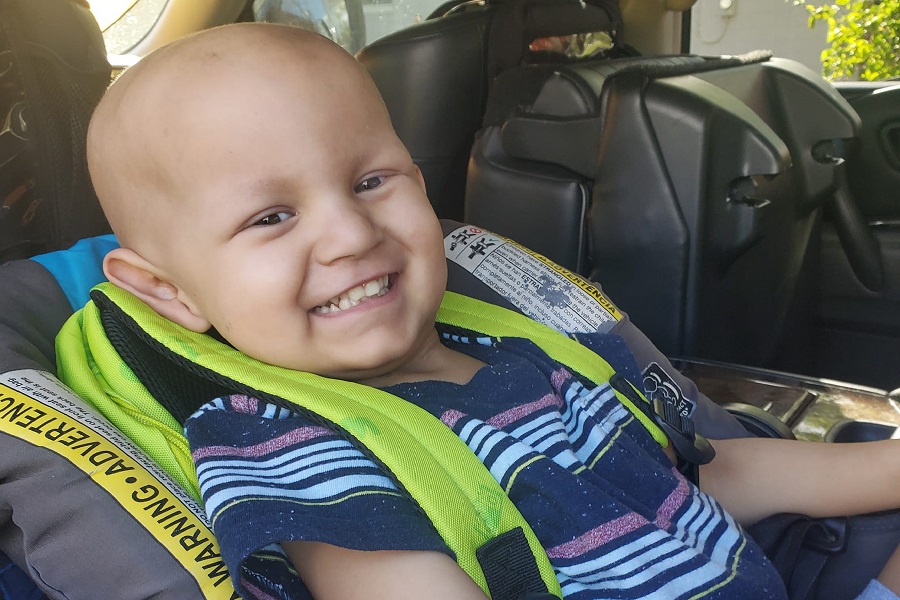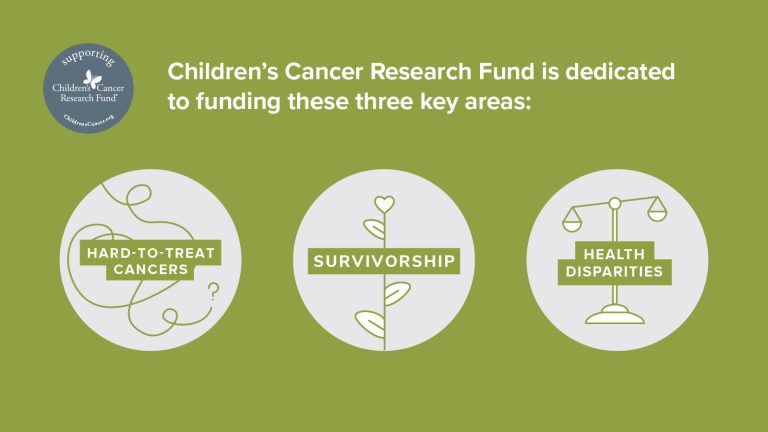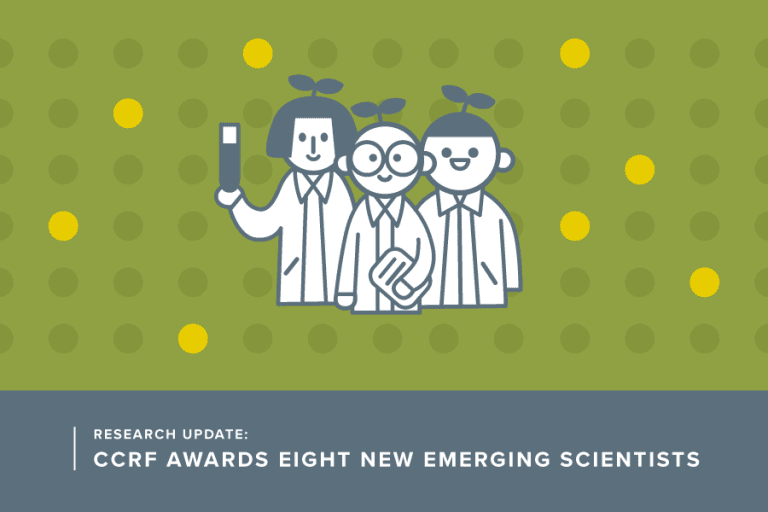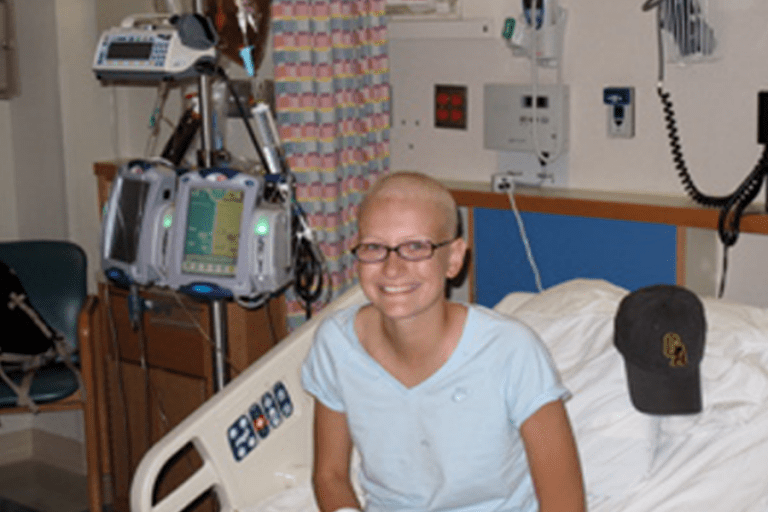Little Bryce was a perfectly healthy 2-year-old until, out of nowhere, he had a seizure on the morning of July 23, 2021. Bryce wasn't vocally responding that morning which was very unusual. His older sister heard him making a choking sound and got her mom immediately.
“It looked like he was drowning – except there was no water nearby,” said Mary, Bryce’s mom. “Bryce wouldn’t acknowledge us calling his name and began to reach for the ceiling and started smacking his mouth and twitching.” This spiraled into total body limpness, then convulsions. Bryce was having a very intense seizure.
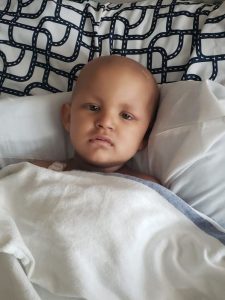
Bryce in the hospital recovering from his stem cell transplant
His mom and three older siblings were terrified – they called an ambulance and Bryce was rushed to the hospital, where doctors saw a small spot on his brain. The doctors in the emergency room weren’t able to give Bryce’s parents any definitive answers, but they wanted to keep an eye on the suspicious spot.
It took Bryce’s team a while to figure out exactly what was going on, but in September 2021, he was diagnosed with a rare type of brain tumor – primitive neuro-ectodermal tumor/central nervous system embryonal tumor not otherwise specified, to be exact. In the time it took to get the official diagnosis, his tumor grew from the width of a fingernail to roughly the size of a lime.
Bryce needed treatment right away, and due to the location of his tumor he was unable to have surgery to remove it due to a high likelihood of long-term disabilities. He started his six-cycle chemotherapy protocol that required seven days in the hospital for each. Due to complications, each of Bryce’s cycles meant roughly 30 days in the hospital. He was able to be out of the hospital for Halloween so he could show off his “baby shark” costume and trick-or-treat with his three older siblings, but he was stuck in the hospital for Christmas.
During treatment, Bryce was having trouble walking – he had to learn to walk again after long periods of not feeling well enough to try. Many of the drugs he had to take made him very sick, and the steroids he took to keep him strong enough to endure chemo made him hungry and cranky. At one point, he was taking up to eleven different medications twice daily – certainly not something a 3-year-old should have to know how to do.
Research for childhood brain tumors lags behind research for more common childhood cancers like leukemia, so Bryce’s family and his care team are faced with making big decisions with limited data, and very few options.
“It’s heart-wrenching hearing that your child is one of the sickest children on the cancer floor,” Mary said.
Thankfully, these difficult treatments seem to be working – an MRI in January showed his tumor was 90% gone. But Bryce still has a long way to go. The last two chemo cycles unfortunately did not show any change to the tumor. His care team is keeping a close eye on the tumor that’s left and hoping the sixth cycle, which included high doses of three new chemotherapies and a stem cell transplant, will continue to chip away at it.
In the meantime, Bryce is doing his best to live the life a 3-year-old deserves – playing with his siblings and making people laugh with his goofy sense of humor.
Bryce’s family says it’s difficult to see their usually smiley little boy hooked up to so many machines – but they know he’s strong, and they’ve done their best to explain to him what he’s going through. They’ve endured months of treatments so far, and although the road ahead is unclear, they’re sticking together, leaning on faith and encouraging their son through every difficult day.
“Bryce was born a fighter. He’s always enjoyed wrestling and rough housing,” Mary said. “He is just sucking it up and doing what I have asked him to do every day since we found out. I told him he has a big boo boo inside his head and he has to be strong. He has to be bigger and stronger than the boo boo.”
We can do more for kids like Bryce.
Cancer treatments for kids like Bryce often haven't improved in decades - but we believe we can do better by funding research. Your gift supports researchers searching for better, safer treatments for kids fighting cancer.

